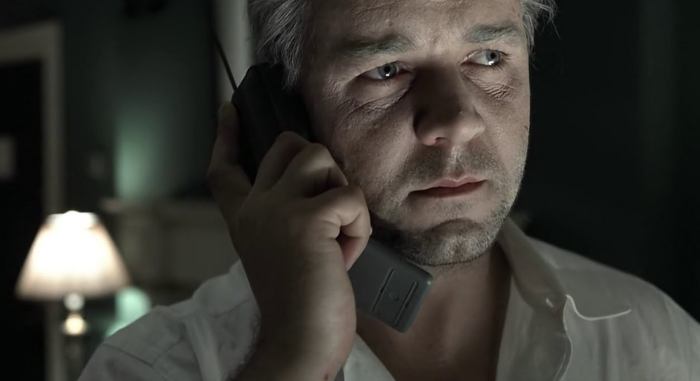
The 72nd Academy Awards (2000)
Nominations: 7
Wins: 0
It’s weird to think there was a time when cigarettes were deemed equally dangerous as fast food. Joe Camel was in ads all the way up to 1997. People knew cigarettes were addictive but not how addictive. The story behind The Insider is an important building block in the campaign for the truth behind cigarettes. This is the story of Dr. Jeffery Wigand (Russell Crowe) who in real life was a whistleblower after revealing that his company, Brown and Williamson Tobacco Company, was tampering with cigarettes to make them more addictive. It’s also the story of Al Pacino with big hair yelling a lot.
I picked The Insider this year because it’s a nice cross-section of many things I like. It’s Michael Mann, It’s Russell Crowe at his peak, it’s Al Pacino before he started making garbage disguised as movies with names like “88 Minutes” and “Righteous Kill.” It’s a story that sheds light on the ruthless power of tobacco companies and also those who bowed down to them. Specifically, CBS and its most popular show at the time “60 Minutes.” It’s all stuff that was going on when I was young but too young to understand. But now I’m a man watching a razor-sharp thriller for adults, and I get it.
Now that I’ve seen it I can confidently say Russell Crowe is the most successful part of this movie. Despite playing a character who is about twenty years his senior, Crowe marvelously plays a middle-aged family man fearful of coming forward with the truth. This is because Wigand makes contact with a 60 Minutes producer, Lowell Bergman (Al Pacino), not long after he uncovers company secrets. He tapes an interview with Mike Wallace (Christopher Plummer) but is quickly found before the interview airs. He starts getting death threats, guys start following him, he fears for the safety of his life and family, etc. All good thriller essentials.
What makes the movie fun is it’s also a movie about journalistic integrity. CBS scared they will get sued into oblivion, tries to hold off on showing Wigand’s testimony. Even Mike Wallace gets cold feet. An aspect to Wallace’s character that the real Mike Wallace hated. Even though it’s true. So really it’s up to Lowell Bregman and a team of southern lawyers to insure that Dr. Wigand’s words are presented fairly and truthfully… if at all.
What Michael Mann brings to the equation is a slick-looking thrill ride with dynamic cuts and a sense of uneasiness hanging over the film’s moody visuals. Mann’s script (that he co-wrote with screenwriting vet Eric Roth) is a meticulously detailed retelling of the events that started with Marie Brenner’s 1996 Vanity Fair article “The Man Who Knew Too Much.” It’s a lot of facts but presented in dynamic dialogue scenes between pros like Phillip Baker Hall, Bruce McGill, and Gina Gershon, to name a few. I always appreciate a film that gives meaty roles to underrated character actors.
The film was nominated for 7 Oscars and shut out across the board. One of the few nominations it didn’t get that I feel it should have was a Best Supporting Actor nod for Christopher Plummer. Though we’ve covered on our podcast that the Supporting Character Actor was packed enough that year. Still, it would have been well deserved.
A lot of the films I choose for this Oscar celebration feel like homework. But this one was fun. It plays like a thriller. It doesn’t have any fights or chases but it does have Russell Crowe falling over in his front yard. All of this and it’s a movie with good intentions. Corporate overlords are bad, smoking is bad, you gotta stick up for the little guy, and you gotta have big hair. Good work Pacino.


